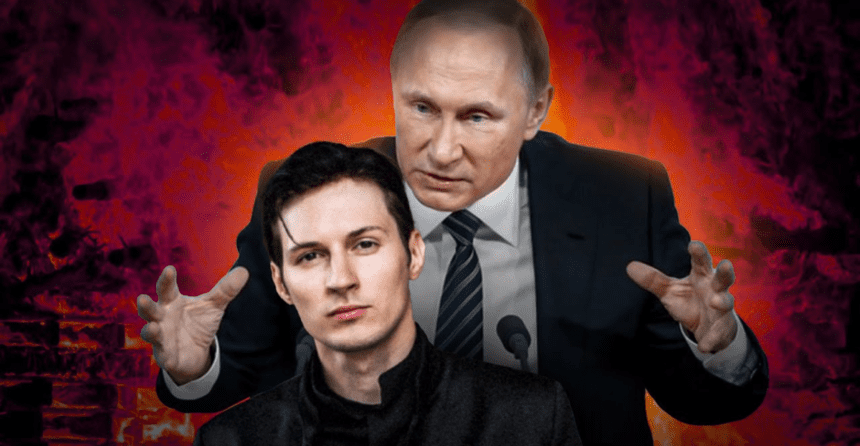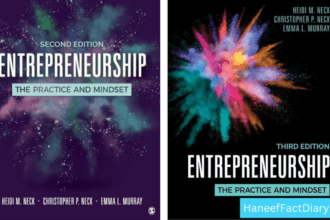Was Pavel Durov removed by VK’s Board members or was someone powerful plotted this?
Pavel Durov CEO of “Vkontakte (VK)
In Pavel’s university year’s he created a popular forum spbgu.ru.
In 2006 he met his former classmate Vyaceslav Mirilashvili in Saint Petersburg. Vyacheslav showed Durov the increasing popularity of “Facebook”. And both friends decided to create a new Russian social media network.
Soon, an Israeli classmate of Vyacheslav Lev Binzumovic Leveiv became the third co-founder. Durov became CEO (chief executive officer). with his older brother, Nikolai developed the site.
Nikolia was the winner of international math and programming competitions. Durov launched Vkontakte for beta testing in September 2006. Later became a Russian private company on 19 January 2007.
Growth of Vkontakte from 1 Million to 10 Million Users
After 6 months of becoming private, users grew to 1 Million and attracted a 10 million user base by April 2008.
In December 2008 VK overtook its rival Odnoklassniki. By overtooking rival VK became Russia’s popular social media. This company grew to a value of 3 billion dollars.
Pavel Durov shows “Middle finger” to Mail.ru Group
In 2012 Durov posted a picture of himself showing his middle finger. Calling it his official response to mail.ru group efforts to buy VK.
In December 2013 he decided to sell his 12% to Ivan Travrin. Later, Tavrin sold these shares to Mail.ru Group.
Pavel Durov Resignation from VKontakte

On April 1, 2014, Durov submitted his resignation to the VK board.
It seemed genuine but later on April 3, 2014, he claimed that it was an April Fools Day joke. Clarified that the resignation wasn’t serious. Despite calling it a joke, Durov did end up leaving VK later that same month.
On April 21, 2014, Durov was dismissed from VK by the company’s board. Citing that his resignation had gone through Public. This appears as a covering for something that is happening behind the scenes.
Actual Reason behind Pavel Durov’s Resignation from VK
FSB demands VK to give personal User Data

“FSB(Federal Security Service)” is the main security agency in Russia.
FSB handles internal security, counterintelligence, and counterterrorism. Requested personal data of Ukrainian protesters who got involved in the Euromaidan protests. These protests began in late 2013 and opposed President Viktor Yanukovych’s pro-Russian politics.
(Viktor Yanukovych is Ukraine’s president at the time)
This protest led to Yanukovych’s removal from office resulting in heightened tensions between Russia and Ukraine. The FSB also demanded the blocking of Alexei Navalny’s page on VK. Navalny is a prominent opposition leader in Russia.
(known for his anti-corruption campaigns-vocal criticism of Vladimir Putin’s regime.)
Also Read: Who is Pavel Durov? Networth, Lifestyle, Family, Age, Height, Birth.
Also Read: Telegram CEO Pavel Durvo got Arrested, For ILLEGAL Activities.
Durov’s Refusal On FSB Demands
Durov considered these requests unlawful. He decided to make the government’s demand public. Durov posted about these orders on his own VK page. Defying the FSB and exposing the pressure the government was placing on him and his company.
Durov’s Dismissed from his own company

5 days later, on April 21 2014, Durov got dismissed as CEO of VK. Company claimed his resignation from earlier in April got enforced. He later clarified it as a joke and tried to withdraw it. The VK board used his resignation letter to remove him from the company.
Durov believed his dismissal was politically motivated. This can result of Refusal to cooperate with the Russian government’s demands. Durov argued, Company been “taken over” by people close to President Vladimir Putin.
This takeover likely involved influential Russian oligarchs or entities. they took control on VKby acquired significant stakes in VK, aligning the company’s operations with Kremlin’s interests.
Also Read: Why Pavel Durov’s Detention Shook Both the Russian …
DUROV “No Plans To Go Back To Russia”.
After Removal from CEO Durvo left Russia stating he had “No plan’s To Go Back To Russia”.He believed Russia became incompatible for a free and open internet business environment.This incident marked a significant moment for tech in Russia.
Resulted in increased control on the internet and freedom of expression. We can assume Durov’s departure from VK was the result of his defiance against the government. refusing to hand over data and blocking political opposition leaders were major factors.
This refusal resulted in clashes with the increasing control of Putin’s allies over VK. This explains the issue of government surveillance and control over free speech in Russia.
PAVOL DUROV’S SUCCESSFUL VENTURE “TELEGRAM”.
Durov obtained citizenship in Saint Kitts and Nevis after leaving Russia. He obtained this citizenship by making significant donations. He also secured 300 million dollars in Swiss banks.
This allowed him to focus on new ventures outside of Russia’s control. The name of this venture is Telegram. He assumed, by launching cryptocurrency he could capitalize on Telegram’s popularity.
Plan was to launch a cryptocurrency called “Gram”. With a blockchain platform called “TON”. Creating a decentralized financial system was the final goal but it didn’t go as planned.
US financial regulations on Telegram’s Plan.

The US financial regulations intervened, as a result Durov had to stop the project. He also returned the money to investors. This illustrates the challenges one needs to face while involved in cryptocurrency.
Russian government tried to block Telegram because Durov refused to share user data. This shows the government seeks control while tech company focus on privacy. Despite Russia’s efforts Telegram evaded blockage for two years.
This shows such control can liberated through technology. Russia lifted the ban when telegram agreed to help counter terrorism. but telegram didn’t compromise with its core encryption principles.
Conclusion.
Durov’s story embodies the tension between tech innovation, government control, and personal freedom.
from, refusal to agree with governments unfair demands for personal data.to leave VK and leave Russia. This story shows the building pressure between governments and digital platforms.
Durov’s resilience towards free expression resulted in Telegram’s success. Durov remained on the free speech path despite government’s pressure. We can conclude that control is not possible when Technology is in good hands.






